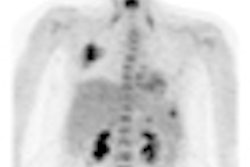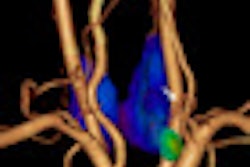Dear AuntMinnie Member,
The American College of Radiology (ACR) is now recommending against the use of three gadolinium MRI contrast agents in patients at high risk for nephrogenic systemic fibrosis (NSF).
In a chapter on NSF included in the ACR's latest Manual on Contrast Media, the society sorts gadolinium-based contrast agents into three groups according to their association with single-agent, nonconfounded incidents of NSF and their overall utilization volumes. Omniscan (GE Healthcare), Magnevist (Bayer HealthCare Pharmaceuticals), and Optimark (Covidien) were included by the authors in the group of agents that contributed the greatest number of NSF cases.
Investigators believe that the intrinsic properties of these agents increase the relative likelihood of NSF in at-risk patients, according to the ACR.
Contributing writer James Brice has our coverage of the new ACR recommendations, which you can access by clicking here or visiting our MRI Digital Community at mri.auntminnie.com.
Pediatric PET/CT
Research efforts are continuing to evaluate the efficacy of reduced image acquisition times for pediatric patients, and one of the latest studies was presented at last week's SNM meeting in Salt Lake City.
A team from Seattle Children's Hospital and University of Washington Medical Center found that acquisition times for pediatric PET/CT studies could be reduced by 30% without adversely affecting lesion detection or diagnostic confidence.
But the study authors weren't ready to recommend shorter acquisition times for all pediatric patients. Click here for the details in our story by features editor Wayne Forrest, or visit the Pediatric Imaging Digital Community at pediatric.auntminnie.com.





















